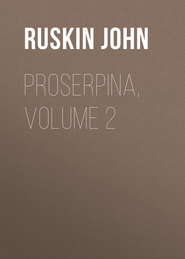По всем вопросам обращайтесь на: info@litportal.ru
(©) 2003-2024.
✖
The Poetry of Architecture
Автор
Год написания книги
2018
Настройки чтения
Размер шрифта
Высота строк
Поля
Oxford, Jan., 1838.
V.
A CHAPTER ON CHIMNEYS
61. It appears from the passage in Herodotus, which we alluded to in the last paper, that there has been a time, even in the most civilized countries, when the king's palace was entirely unfurnished with anything having the slightest pretension to the dignity of chimney tops; and the savory vapors which were wont to rise from the hospitable hearth, at which the queen or princess prepared the feast with the whitest of hands, escaped with indecorous facility through a simple hole in the flat roof. The dignity of smoke, however, is now better understood, and it is dismissed through Gothic pinnacles, and (as at Burleigh House) through Tuscan columns, with a most praiseworthy regard to its comfort and convenience. Let us consider if it is worth the trouble.
62. We advanced a position in the last paper, that silence is never perfect without motion. That is, unless something which might possibly produce sound is evident to the eye, the absence of sound is not surprising to the ear, and, therefore, not impressive. Let it be observed, for instance, how much the stillness of a summer's evening is enhanced by the perception of the gliding and majestic motion of some calm river, strong but still; or of the high and purple clouds; or of the voiceless leaves, among the opening branches. To produce this impression, however, the motion must be uniform, though not necessarily slow. One of the chief peculiarities of the ocean thoroughfares of Venice, is the remarkable silence which rests upon them, enhanced as it is by the swift, but beautifully uniform motion of the gondola. Now, there is no motion more uniform, silent or beautiful than that of smoke; and, therefore, when we wish the peace or stillness of a scene to be impressive, it is highly useful to draw the attention to it.











